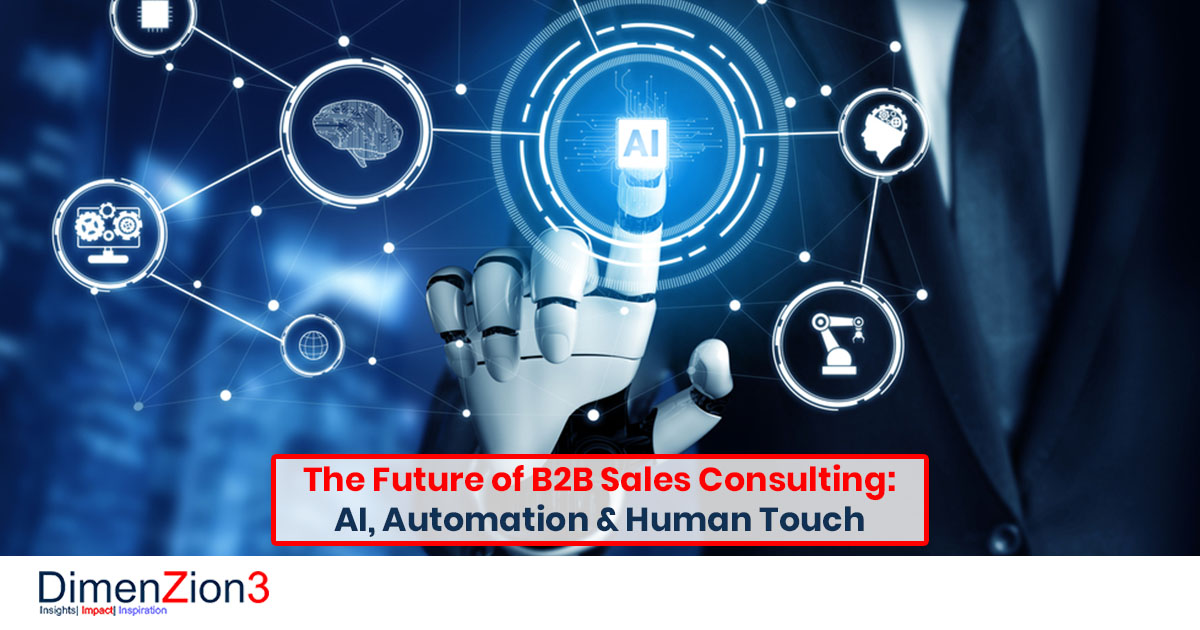The Future of B2B: Taking Advantage Of AI Automation to Drive Success
The landscape of B2B is shifting as companies progressively turn to AI automation for strategic benefit. This change promises to enhance efficiency and client involvement through advanced innovations. Nevertheless, the combination of these tools is not without its difficulties. Recognizing just how businesses can browse this evolving surface will be essential for future success. What elements will figure out the efficiency of AI in this field? The responses may redefine traditional company versions.
Recognizing AI Automation in B2B
As services significantly seek effectiveness, comprehending AI automation in B2B ends up being essential. AI automation refers to making use of fabricated intelligence innovations to enhance and enhance organization procedures. In the B2B field, this entails the integration of AI tools to take care of jobs such as data analysis, consumer communications, and supply chain operations. By leveraging device understanding and all-natural language handling, business can improve precision, reduce human mistake, and accelerate decision-making (Minarik AI). Additionally, AI automation promotes the handling of huge volumes of information, making it possible for businesses to extract valuable understandings and maximize their procedures. As companies browse this technological landscape, a thorough grip of AI automation's capabilities will encourage them to remain affordable and receptive to market needs
Key Benefits of AI Automation for Businesses
While lots of services face increasing operational demands, AI automation presents numerous benefits that can considerably improve their efficiency. One considerable benefit is effectiveness; AI systems can carry out repetitive jobs quicker and with better accuracy than people, thus freeing and reducing errors up workers for even more strategic campaigns. Additionally, AI automation makes it possible for data-driven decision-making by evaluating vast datasets rapidly, giving understandings that inform service techniques. Price reduction is another key benefit, as automation reduces labor expenses and maximizes resource allotment. Additionally, AI can enhance scalability, permitting organizations to adjust to market changes swiftly. Ultimately, the integration of AI automation fosters innovation, enabling firms to stay affordable in a rapidly progressing landscape.
Transforming Consumer Experiences With AI
AI is improving client experiences by allowing customized interactions and improving involvement. Through the application of anticipating analytics, organizations can expect customer requirements and choices, causing a lot more tailored solutions. In addition, streamlining assistance procedures with AI technology enhances effectiveness and complete satisfaction, eventually transforming the overall client trip.
Customized Interactions and Involvement
Personalized interactions have become a keystone of effective customer involvement in the B2B landscape. By leveraging AI-driven options, businesses can customize their interaction and offerings to meet the unique requirements of each customer. Automated systems examine consumer choices, information, and actions, making it possible for organizations to develop customized experiences that resonate with their target market. This degree of customization not only enhances client complete satisfaction however also cultivates lasting commitment. In addition, AI tools assist in real-time interactions, allowing businesses to react promptly and effectively to questions and responses. Consequently, business can construct stronger connections with customers, making sure that their services line up with evolving expectations. Ultimately, personalized engagement with AI brings about enhanced outcomes and continual success in the competitive B2B market.
Predictive Analytics Implementation
As services significantly seek to improve customer experiences, implementing anticipating analytics has actually become an essential technique in the B2B market. By leveraging data-driven understandings, companies can anticipate customer requirements and preferences, allowing them to tailor their offerings better. Predictive analytics uses innovative algorithms and historic data to forecast future habits, permitting businesses to recognize potential obstacles and chances. This positive method not only improves consumer satisfaction but additionally cultivates loyalty by delivering appropriate and prompt solutions. In addition, predictive analytics aids in resource appropriation, ensuring that advertising and marketing efforts are focused on high-value leads. Ultimately, the assimilation of anticipating analytics gears up B2B companies with the tools necessary to change client interactions and drive lasting success in a significantly competitive landscape.
Streamlining Support Procedures
Enhancing consumer experiences in the B2B market prolongs beyond predictive analytics; streamlining support procedures plays a crucial function. By integrating AI-driven solutions, companies can enhance and automate routine questions reaction times, bring about increased client complete satisfaction. Chatbots and digital assistants provide 24/7 support, addressing customer needs quickly and reducing the problem on human agents. This automation enables teams to concentrate on complicated concerns, cultivating even more meaningful communications. AI tools can assess support data to identify fads and areas for enhancement, ensuring constant enhancement of solution top quality. As organizations adopt these innovations, they place themselves as responsive and customer-centric, eventually driving commitment and organization development in an increasingly competitive landscape.
Improving Procedures and Processes
Improving operations and procedures in B2B atmospheres is important for boosting general efficiency. By maximizing process effectiveness and automating regular tasks, organizations can minimize hands-on errors and liberate valuable sources. This shift not just improves performance yet also enables groups to concentrate on strategic efforts that drive growth.
Optimizing Operations Performance
Enhancing workflow efficiency is important for organizations looking for to minimize functional prices and boost productivity. By assessing existing procedures, companies can identify traffic jams and redundancies that impede performance. Carrying out streamlined procedures boosts communication and partnership amongst teams, making sure that tasks are finished more promptly. Using data-driven understandings makes it about his possible for companies to make educated decisions that refine procedures better. Additionally, embracing integrated innovations can assist in seamless info flow, minimizing the risk of hold-ups and mistakes. As companies embrace these modifications, they not only promote an extra nimble workplace but also position themselves to respond quickly to market needs - AI Automation For B2B. Ultimately, concentrating on process effectiveness allows organizations to designate resources efficiently, driving long-lasting success in a progressively affordable landscape
Automating Regular Jobs
Several organizations are significantly turning to automation to manage regular tasks, identifying its possible to significantly improve operational performance. By releasing AI-driven options, firms can enhance recurring tasks such as information access, invoice processing, and client inquiries. This shift not just minimizes human error however additionally liberates valuable employee time, enabling personnel to concentrate on value-added tasks and tactical campaigns. Furthermore, automation can enhance reaction times and service uniformity, causing enhanced customer fulfillment. As businesses browse an affordable landscape, leveraging automation for regular jobs comes to be necessary for maintaining and optimizing process agility. Ultimately, this technique fosters advancement and drives growth, positioning organizations for lasting success in the evolving B2B setting.
Enhancing Decision-Making With Information Insights

Getting Over Challenges in AI Execution
Although AI execution holds the promise of significant functional renovations, companies usually face a myriad of difficulties that can hinder progress. Trick barriers consist of data high quality problems, as several ventures have problem with insufficient or inconsistent datasets necessary for efficient AI training. Furthermore, resistance to change within the labor force can hinder the adoption of AI technologies, as workers may fear work variation or do not have the essential skills. Spending plan restrictions likewise offer a difficulty, limiting financial investment in the required framework and ability. Incorporating AI systems with existing processes can be complex, demanding significant time and sources. Overcoming these difficulties necessitates a critical technique that consists of detailed training, change management, and a dedication to continual enhancement in AI initiatives.
Future Fads: The Next Frontier in B2B Automation
While the landscape of B2B automation proceeds to progress, arising fads are poised to redefine exactly how organizations operate. The combination of advanced expert system will certainly promote much more individualized customer experiences, enabling organizations to customize services specifically to customer demands. The rise of predictive analytics will certainly enable companies to expect market changes and maximize decision-making procedures. Automation of regular jobs through robotic procedure automation (RPA) will certainly improve effectiveness, reducing operational costs significantly. Additionally, the fostering of blockchain technology assures boosted openness and security in transactions. As these developments gain traction, business will progressively leverage AI-driven understandings to cultivate partnership, enhance supply chains, and improve general efficiency, marking a transformative shift in the B2B landscape.
Regularly Asked Inquiries
What Sorts Of Businesses Can Benefit Most From AI Automation?
Manufacturing, logistics, and client service businesses can benefit most from AI automation. These industries improve functional efficiency, reduce costs, and improve client communications, ultimately causing enhanced productivity and productivity in an open market.
How Can Tiny Businesses Execute AI Automation Effectively?
Tiny organizations can apply AI automation properly by recognizing repetitive jobs, choosing user-friendly devices, guaranteeing adequate training for workers, and progressively integrating options to optimize operations while monitoring performance and readjusting approaches based upon feedback.
What Are Common Mistaken Beliefs Concerning AI in B2B?
Usual mistaken beliefs regarding AI in B2B include the belief that it is only for huge enterprises, that it assures instantaneous results, and that it can completely change human decision-making instead than enhancing it. Growth Systems For B2B.
Exactly How Does AI Automation Impact Employee Responsibilities and Job Protection?
AI automation improves worker roles by streamlining repeated jobs, cultivating performance and innovation. While some anxiety task loss, it usually creates chances for upskilling and new placements, eventually improving task safety through included value and productivity.
What Skills Are Needed to Manage AI Automation Projects?

As organizations progressively look for efficiency, comprehending AI automation in B2B comes to be essential. AI automation facilitates the handling of large quantities of information, enabling companies to extract beneficial understandings and maximize their procedures. While many businesses grapple with boosting operational needs, AI automation provides countless benefits that can considerably improve their efficiency. Automation of routine tasks with robot procedure automation (RPA) will enhance performance, decreasing operational costs considerably. Production, logistics, and customer service businesses can profit most from AI automation.